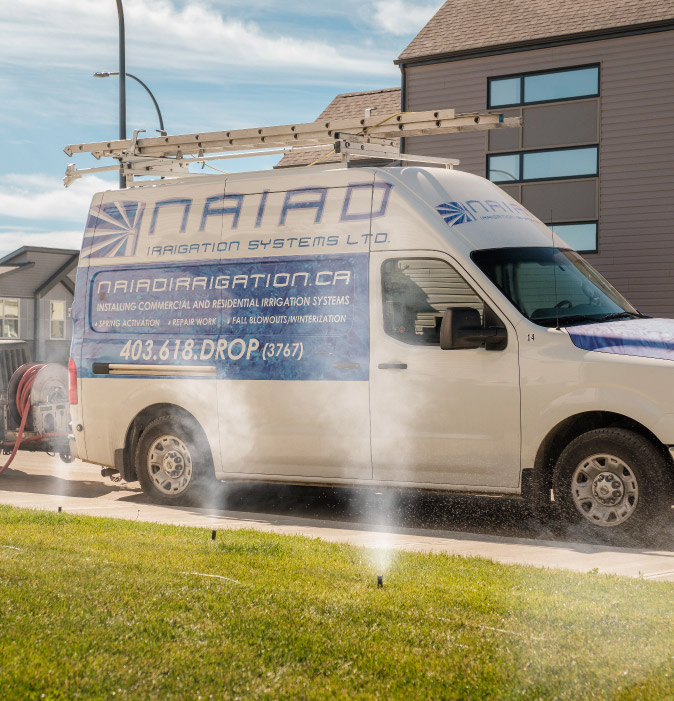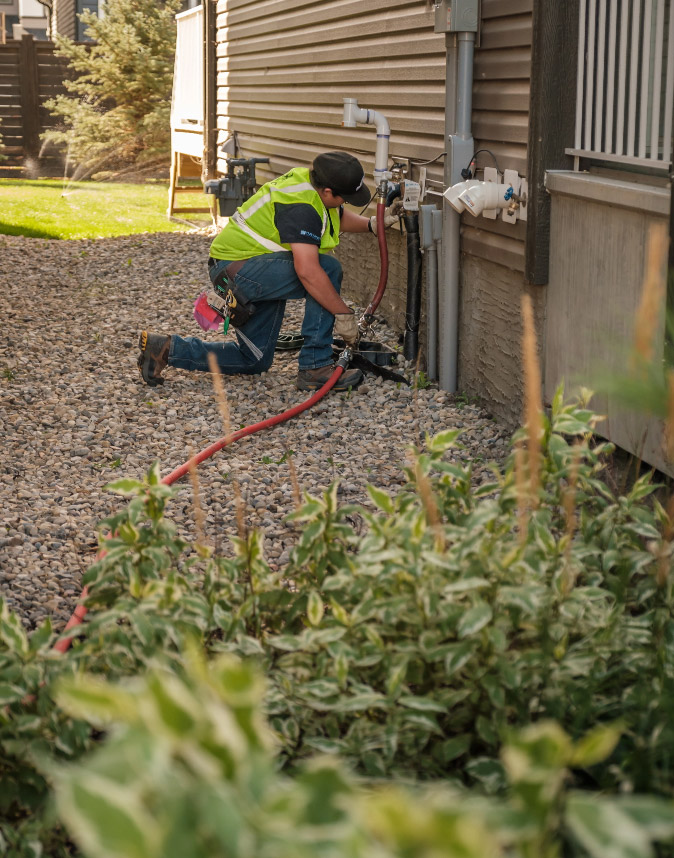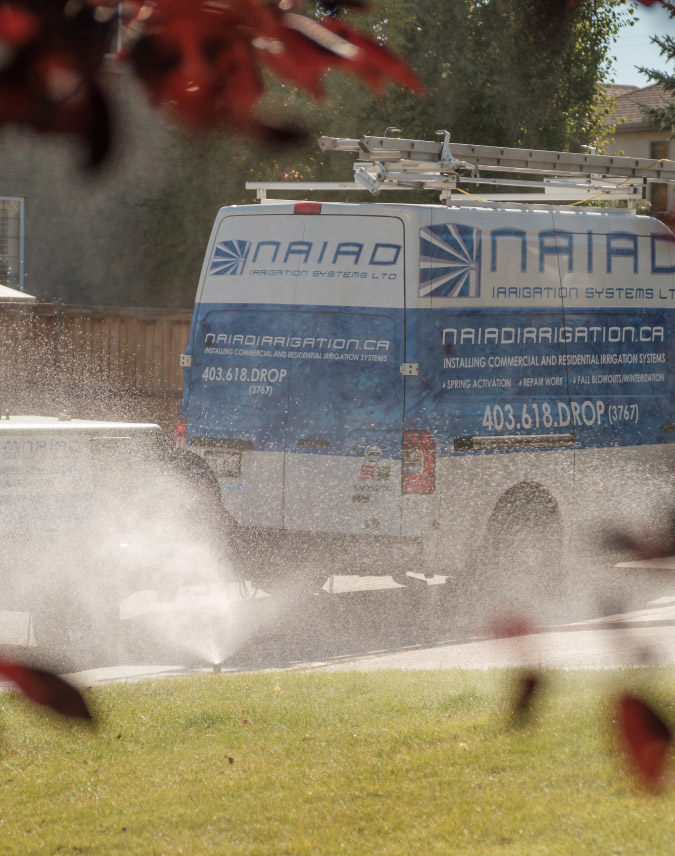Safeguard your system for the winter with our complete and certified blowout service.

Watch: Sprinkler System Blowout
Frozen water expands and can damage the vital components of your system or burst its pipes. Winterization is also known as a “blowout” because we blow out most of the water from your system, leaving it empty and ready for hibernation.
Calling ‘quits’ on the summer season can be sad, but paying later to repair your system because the winterization was not done on time does not make it any better. Protect your investment and schedule a winterization service in time.
Book Service

We recommend making sure that your irrigation system is running properly. If you experienced any issues in the summer it might be a good idea to have it checked or repaired before your winterization service.
Book ServiceWater expands when it freezes, which can crack pipes, damage fittings, and burst sprinkler components, leading to costly repairs.
A sprinkler system should be winterized before overnight temperatures fall below zero degrees Celsius. Here in Alberta, we recommend winterizing your irrigation system before the end of September. In a few years, the overnight lows have been cold enough to damage the main waterline for the irrigation system as early as September 28th.
Ultimately, you can run it later into the season, but there is always the risk that a cold overnight low could damage your irrigation system. The bit of pipe that goes from the house to the valve box is most at risk. That bit of pipe is exposed to the elements and can freeze faster than the pipes or sprinklers in the ground.
Ensure all water is turned off and the system is clear of debris. It is also crucial to schedule one before freezing temperatures set in.
It’s recommended to winterize your irrigation system annually before the first freeze. Generally speaking, before the Canadian Thanksgiving Day long weekend. To be safe, before the end of September.
Look for visible cracks, leaks in the valve box control valves, pipes or sprinkler heads, and any irregularities in system performance.
The main risk is significant damage to the irrigation system, including burst pipes and broken valves, which can be expensive to repair.
It’s possible, but you will need to have all the right tools and knowledge. Professional winterization services like Naiad’s will ensure it’s done correctly and safely.
Regarding the service commonly referred to as a Sprinkler Winterization or “Fall Blowout”, depending on the system layout, parts may need to be disconnected in order to ensure that the system has been winterized properly.
Because the system no longer has water running through it, Naiad Irrigation Systems Ltd. (hereafter referred to as “Naiad”) cannot guarantee that any components that may or may not have been disconnected and reconnected during the winterization process will be reconnected to the point in which they could be deemed as watertight.
Furthermore, in order to allow certain irrigation systems to drain properly, some exterior components of the system may be left open after the service has been completed to prevent any potential damage to the system over the winter.
With this being the case, Naiad cannot and shall not be held responsible for any potential and/or actual damages to any persons and/or property due to improperly installed, malfunctioning, or otherwise leaking/open components.
Please Note that Naiad Irrigation Systems is not responsible for any damages or potential damages due to freezing conditions. As a result, Naiad can only guarantee services booked on the first day that we are servicing that area. Appointments booked for the second or third day that we are in the area are highly susceptible to freezing conditions which is why we highly recommend always booking for the first day we are servicing your area to avoid any complications.
Should a system be frozen at the time of the winterization, Naiad will return the following week to attempt to winterize the system again. Notice will be sent to any clients who have frozen systems informing them of the situation.